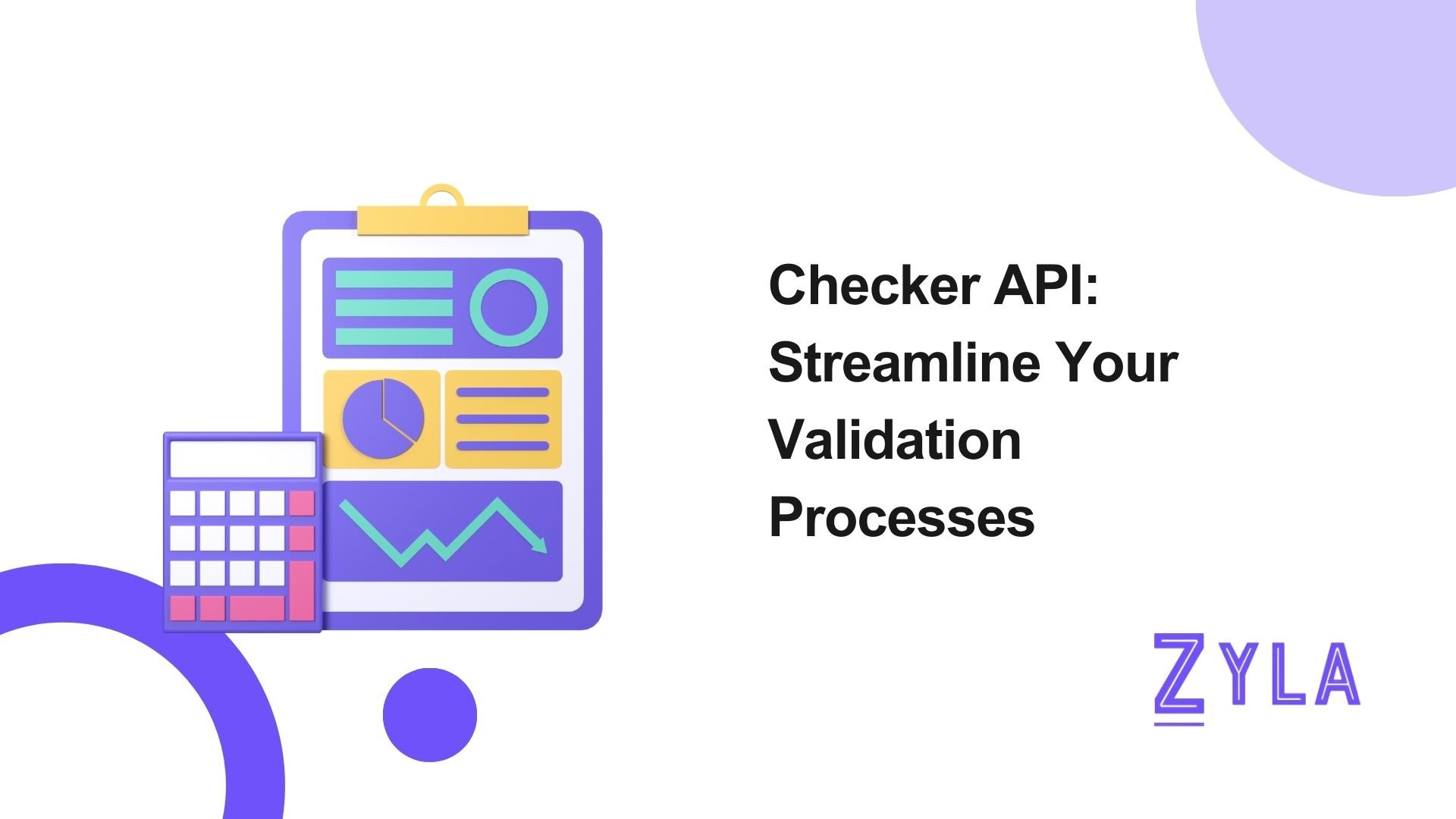Checker API: Streamline Your Validation Processes

Accuracy and dependability of data are critical in today's hectic corporate environment. Validation procedures are essential for guaranteeing data integrity, which has an effect on regulatory compliance, consumer satisfaction, and decision-making. However, manual errors, a lack of real-time capabilities, and scalability concerns with increasing volumes of data pose significant challenges for businesses when attempting to execute effective validation processes. Here's where the Checker API gets revealed!
This is a potent tool that can improve operational effectiveness and expedite validation procedures. We'll go into the significance of validation procedures in company operations, examine Checker API's capabilities, talk about its applications in a variety of industries, and offer best practices for putting it into practice and making the most of it in this blog post.
Comprehending Validation Procedures
The foundation of well-informed decision-making and satisfied customers is accurate data validation. It guarantees that companies developing products, providing services, and engaging in strategic planning rely on trustworthy information. Furthermore, clients are given a sense of confidence and legitimacy by validated data, which promotes enduring relationships and brand loyalty. Compliance with data protection and privacy rules is mandatory in the current regulatory environment. By reducing the possibility of expensive fines and reputational harm from non-compliance, validating data assists companies in adhering to laws like GDPR and HIPAA.
Exploring Checker API Features
Rapid validation guarantees the integrity and correctness of data, facilitating quick decision-making and smooth client interactions. Checker API provides a broad range of data types, from email addresses to identity documents, meeting different business requirements. Companies can customize validation rules to meet their own requirements, guaranteeing accuracy and adaptability in the validation procedure.
Real-time email address verification lowers bounce rates and increases email deliverability. Verify phone numbers from all around the world to guarantee precise customer communication. Maintaining uniformity in client names across databases will increase the accuracy and dependability of the data.
Zyla API Hub
Zyla was founded as a result of the observation that developers encounter comparable challenges when incorporating various APIs into their applications. By developing an API hub that provides a single account, API key, and SDK, they want to eliminate these barriers. Zyla made the decision to make its center publicly accessible in an effort to make things easier for developers by highlighting the APIs that are now available and speeding up the availability of new ones.
1) Select the API from your dashboard to begin testing. Simply click on the name of the API to go to its own homepage. This page contains all of the API's documentation, endpoints, and usage instructions.
2) The first step in running tests is to activate an API subscription. Make use of each and every seven-day free trial that is offered. It's important to keep in mind that during the trial period, there will only be one hub API accessible. There is a test method in every hub API. The API page has a testing section. From this menu, choose "Test Endpoint" and adjust the parameters as necessary.
3) To see the test results, go to the website. By learning more, you may assess the API solution's usability and usefulness for your project. Keep in mind that every time you use an API call for testing, you are losing a portion of your subscription. Examine the usage data on the dashboard for further information.





